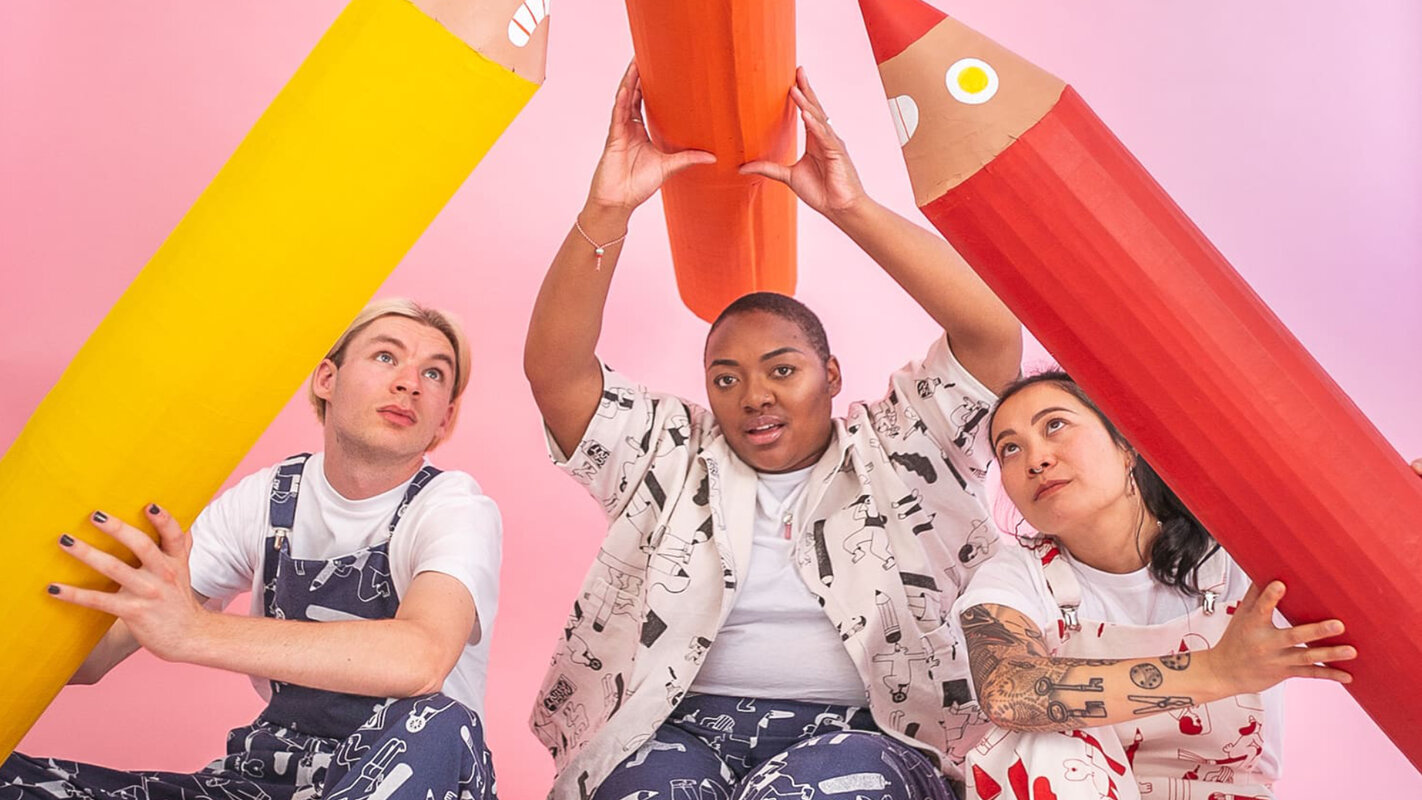
YUK FUN: A Brand That Cares
YUK FUN was founded in 2014 by design duo Lucy Cheung and Patrick Gildersleeves, who met studying Art and Design in Leeds and subsequently set up their studio in Portslade. Their distinctive brand of bold, playful illustration, screen prints and clothing draws on a colourful spectrum of inspiration, from Chinese folk art, Japanese woodcuts and textiles to their shared love of animation, packaging and posters. Clients include Linktree, The Whistler, The V&A, no added sugar, Anorak magazine and Bucketfeet.
Pictoplasma: You got together at university studying art and design, but can you tell us how YUK FUN came into being?
Patrick: After art school, I did a few very badly paid illustration commissions. Some of them were for free. Some of them were paid a meagre £10. I don't feel as though university prepared me in any way for trying to get commissions or exhibitions.
Lucy: While Patrick was doing that – this was about 2014 – it coincided with my six-week summer of being unemployed. It was great. I loved not having a job, but I saw an opportunity for creative businesses to get really low interest loans and free business advice. Patrick had just done this commission, but I thought we should cut out the middleman and just start designing our own T-shirts.
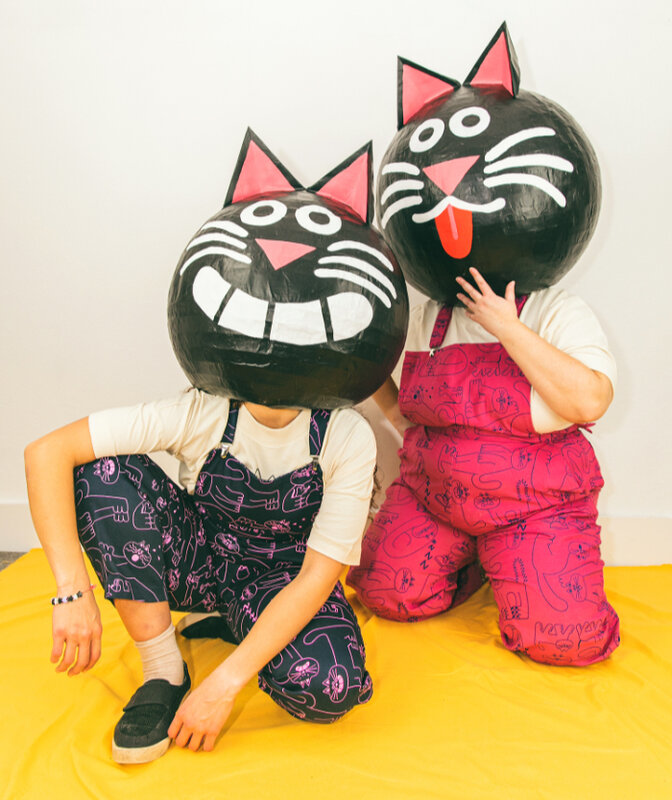
How did the process of making T-shirts lead you towards screen printing?
Lucy: Sometimes we'd order fabric or T-shirts and find that the printers would have changed something and the textiles had just come out a completely different colour, which was very frustrating. So, we decided to start screen printing our own designs at home, starting with sweatshirts. Doing our own printing is a lot cheaper and more fun, and we have total control over the colours, which is nice. Hand printing also gives the fabric more character and charm. Every print is unique.
You have very distinct ways to market your cloths.
Lucy: In quite a lot of our promotional photographs, our models are larking about with some props. These are all handmade by us. We use cardboard, papier-mâché and paint. We think the props make the photo shoots a lot more fun and more interesting, and we do have a lot of fun making them. It's like being at primary school again.
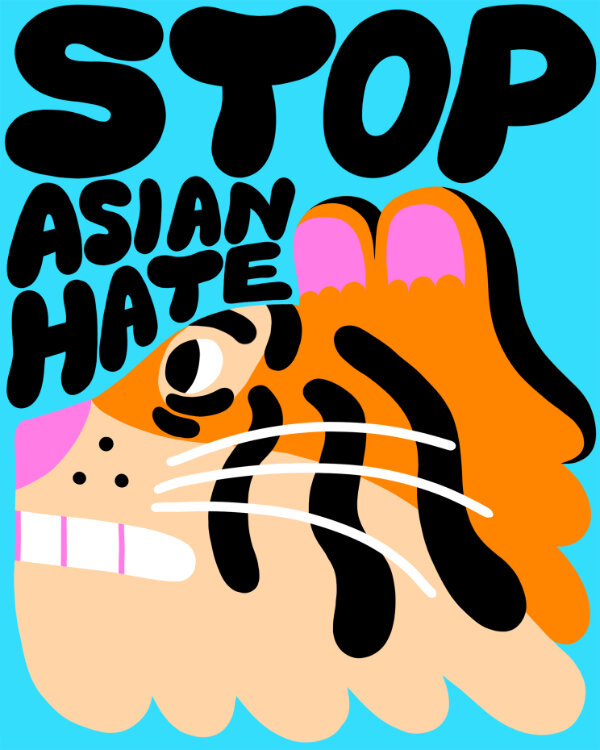
Can you tell us about your drawing club?
Patrick: We were invited to run a drawing workshop in Bristol in 2018, and we had such a nice time meeting everyone and making fun art, we decided to do our own drawing club in Brighton, in our little hometown. We play drawing games. It's just nice to play around and draw for fun, have a drink together, especially when you're focused on trying to make a living from drawing. The pandemic kind of ruined drawing club, but we took it online. It's really nice to spend some time drawing whatever I like, chatting with viewers, and it's helped me generate some characters that have appeared in prints.
"As artists, we can help make a difference."
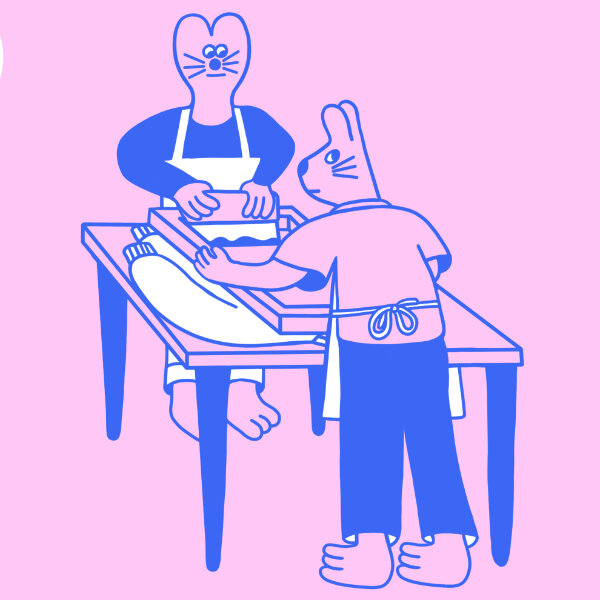
How has social media impacted on what you do?
Lucy: At the end of 2020, we noticed a few news stories circulating about violence against east and southeast Asian elders, particularly in the US, and a few stories in the UK. We created these Stop Asian Hate illustrations and distributed them online as free-to-use for anyone. I think that as artists, we can still help make a difference, but in our own way to help raise awareness of issues that are important to us.
What led us to being more open on social media about social justice issues is the Black Lives Matter movement, which had a huge moment last year in June on Instagram. A lot of things started coming out about companies being racist, including a T-shirt company that we worked with. We shared our thoughts about them on Instagram as a warning to other creatives. It felt as though our artwork was being used to line the pockets of people who didn't care about racism, and we were both really angry about it. A lot of our followers appreciated that we spoke out about it, and it made us realise that YUK FUN isn't just a faceless creative brand, but it's who we are as people and what we care about. I think it's really important to know and pay attention to what the person or company that you support stands for as human beings.
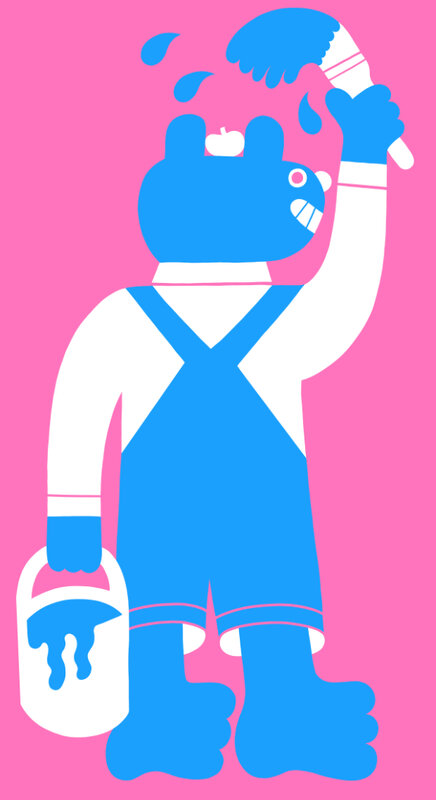
Interview by Pictoplasma published in Pictoplasma Magazin – Issue 2: Character Care, 2022




